Working this way involves a lot more work than just turning up and presenting something but, as I facilitated one of the workshops, I realised it gave me a great deal of satisfaction to see and hear participants turning abstract idea into meaningful conversations and representations of lived experiences (some of them deeply personal). As a speaker I often have no way of knowing whether my ideas have any relevance to the lives of my audience but the workshop allowed me to see that at least on this occasion some of them did.
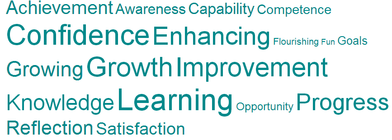
Julian Stodd offers a perspective on co-creation in his Seven Strands of Co-creation blog He writes that 'social learning spaces do not just bring us together to share what we have learnt, they bring us together in spaces where we co-create meaning, Where we write a story together'. That is certainly true of this narrative of co-creation. Julian creates a conceptual tool with seven elements which provide a useful aid to reflect on the process of co-creation in the context of my experience.
Co-creation requires vision. Not the vision of the individual, but rather the shared vision of the community. A desire to learn, a desire to share ideas and do something worthwhile. We come together in these spaces because of the vision, to be inspired by others, as well as to offer inspiration ourselves. It’s also about our field of vision being wider with more eyes: more people bringing a wider range of experience, a wider range of sources, creating more wisdom and meaning. The breadth and differences within community make it stronger. Vision inspires us. JS
While I completely agree that vision and imagination is essential in any creative process I disagree with Julian when he says its not the vision of the individual but the vision of the community. In the co-creation processes I build and facilitate it has to be both. The vision of the individual who leads and facilitates co-creation is in the imagining of a process that can recruit, connect and harness the potential forces for collaboration and co-creation. It is in the imaginings of an ecology within which people will be motivated to contribute and to learn. This does not happen willy nilly - the conditions and opportunities have to be created.
The social space [containing the potential for co-creation] was the university's learning and teaching conference. The space for the purpose of sharing knowledge about learning and teaching provided me with opportunity to share my ideas and to refine (develop) the ideas further through the interactions and sharing of knowledge. Purpose also seems to me to be important - this may be a feature of the space but it also a feature of the process (see below).
Shared value also sits at the heart of communication, we need to share value to understand each other and to develop more refined ideas. Social learning spaces allow us to share value and encourage us to do so by letting us understand the value of other participants. Shared value fosters cooperation and lets us build progressively more complex constructs, based on the foundation values, knowledge and understanding that we share. This is a co-creative process.
Standing in front of an audience certainly required me to state and share my values and I like to think that my values resonate with anyone who cares about the education and learning of our students. I agree with JS that people buy into your values before they cooperate and the high level of engagement of participants suggests to me that this certainly happened.
Part of refining our ideas and narratives in social spaces is that of editing things down. We can use social spaces in this function as we rehearse ideas.....Each time I tell the story, I get feedback and I refine what I say. The process of editing makes my narrative stronger. As my ideas reach maturity i should be able to edit them to the point that i can explain them concisely and with clarity. This only happens with careful editing and is central to the co-creative processes at play in social learning spaces.
This is certainly true I cannot give the same presentation twice I have to customise it for the audience and add new ways of explaining in the hope of clarifying ideas more than I was able to do before. I use pictures to help me and my refinements are usually in my images.
[In] our understanding of how people learn, reflection is a key but often neglected part. We need to take the learning and reflect upon it, to stand up the new learning against what we already know to be true and to develop our thinking accordingly. We may accept or reject new knowledge, but it’s an active process that takes reflection.
I think it is essential but it is more than thinking about something after the event it is thinking about it while it is happening and if necessary adjusting some aspect of process or performance in order to make the process better for co-creation. If you don't engage in the metacognitive process then you miss opportunities.
Tempo has a role too: one of the ways to drive up engagement in social learning spaces is to restrict the length of time that a community space is available, to give it a definite end. This helps drive up the tempo.
Most processes have a natural cycle and the conference had a definite time frame. There was a long lead in time but apart from preparation most of the action took place in the few days prior to the conference and during the conference. The social space for co-creation was indeed deliberately constrained. But I don't think it always has to be.
Challenge is a vital part of learning: it’s something that is done well, if constructively, in social learning spaces. We can challenge ideas, argue our case and co-create a shared narrative out of it.
Trying to interest and engage 300 busy people in an organisation is undoubtedly a challenge. The process of public speaking expects challenge and the live twitter stream ensured that challenges and alternative ideas and viewpoints could be posted and viewed in a very public way.
So what's missing?
For me it's the notion of a process with purpose - a purpose that people buy into because they can see the value in doing so. Spaces are necessary - they provide the context for any co-creative exercise but so are processes that empower and enable people to contribute and within that process the resources and tools that are used to stimulate and engage people, and eventually gather and process knowledge that is shared. What is missing is missing from Julian's conceptual aid is the idea that co-creation is an ecological process involving people interacting with each and with the social space, tools and resources that have been created for the purpose of supporting co-creation. When I look back at the ecologies I have created over the last 12 months all have been social spaces and habitats for co-creation - the idea of developing knowledge through collaboration has been at the heart of the ecology. Such ecologies not only grow new knowledge and perspectives they facilitate access to the products of co-creation so there needs to be provision for collation, sense making and open access curation to enable future ecologies for co-creation to prosper. They connect the past with the present and provide the seeds from which new ecologies can be grown. For example already I am seeking to find out if others have conducted similar surveys on the meanings of personal and professional development.
Finally there is one more perspective I want to offer - the advent of social media has opened up entirely new possibilities for sharing views particularly in conference social spaces. This was brought home to be very forcibly when I reviewed the twitter feed for the #SHULT14 conference as a whole and for my presentation in particular. For the first time I could see what people were taking from what I was saying albeit on a highly selective basis and it has given me confidence that my ideas resonate with at least a few people. I quite like this one.
Hilary Cunliffe @hilary_cunliffe Jun 19
#SHULT14 learning ecologies and the dreaded PDP. So how many program specifications include creativity? Go for it Norman Jackson!
What next?
Every learning ecology should contain within it the potential for further growth because of the relationships and resources that have been developed and the questions that have been raised. So I should also ask myself how can I make this ecological process even more powerful as a vehicle for co-creation? This is something I thought about as I was fulfilling my duties as the cleaner this morning!
Clearly there is still work to be done on analysing and reporting the survey but beyond this I thought that we might produce an issue of Lifewide Magazine on the Ecology of Development theme and invite workshop participants to contribute a narrative and a visual representation and perhaps extend this into a co-created chapter for the Creativity in Development e-book? I can also use a similar methodology in another talk I'm giving in a few weeks time - adapting the questionnaire in the light of this experience. In this way I can continue to build perspectives on the meanings of personal and professional development within universities. I also put out an enquiry into the SEDA Jisc mail list to see if anyone else had done any surveys or research - I was encouraged to have four responses back very quickly. Let's see where these ideas and actions take me.
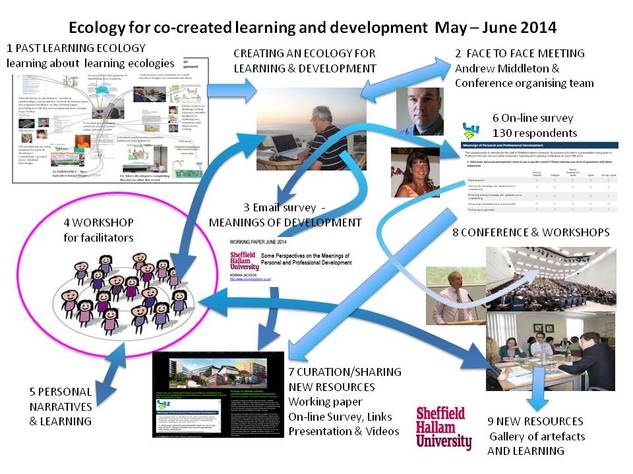
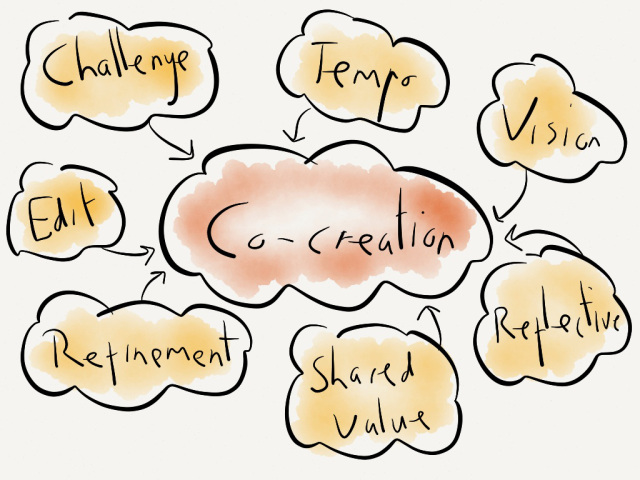
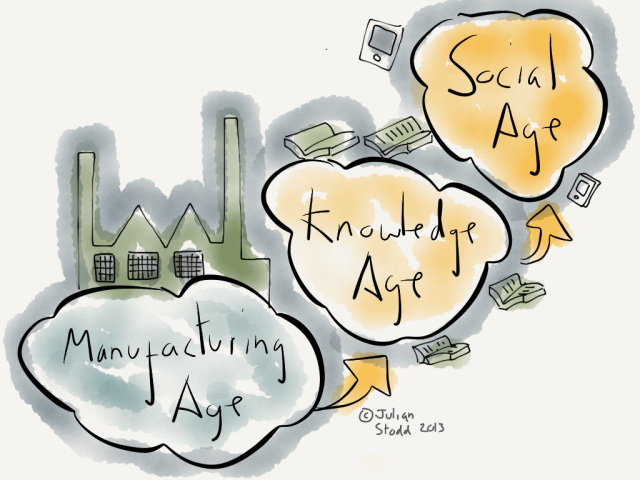
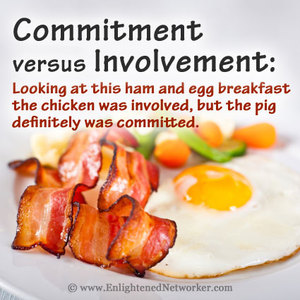
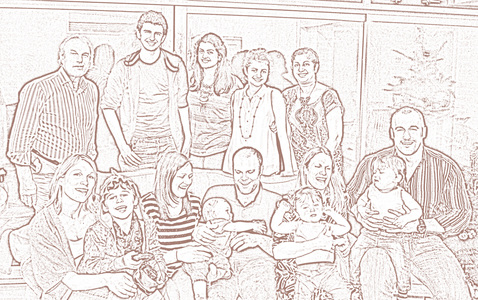

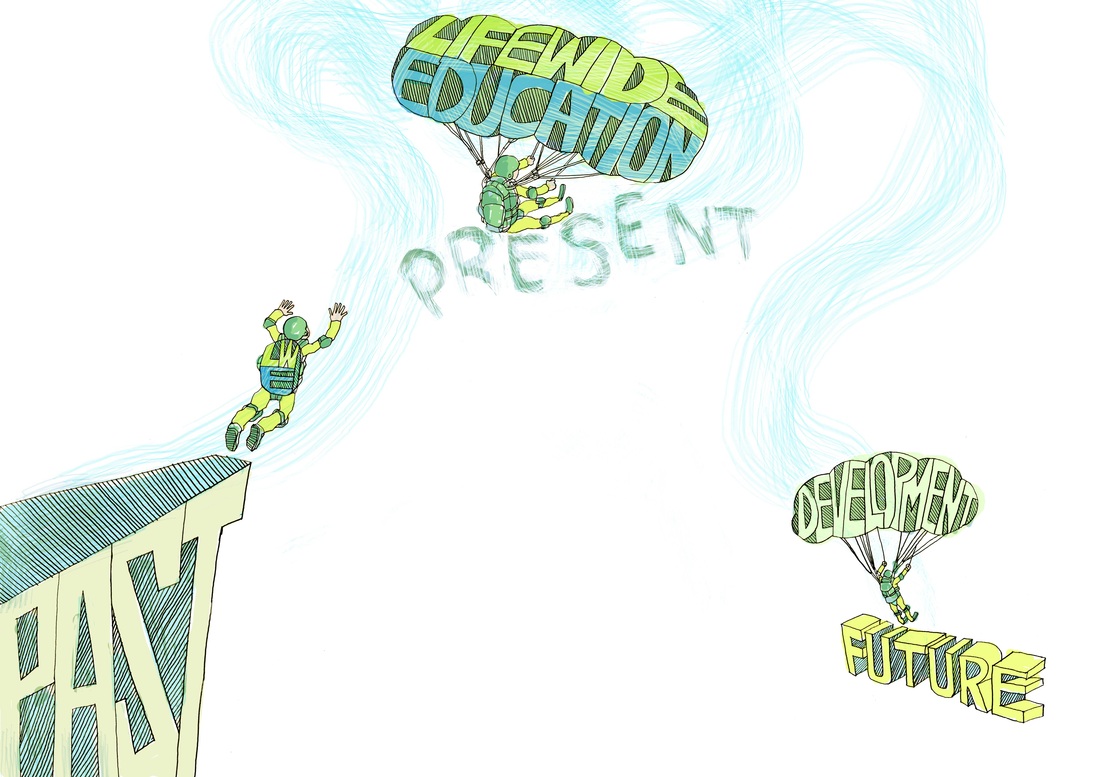

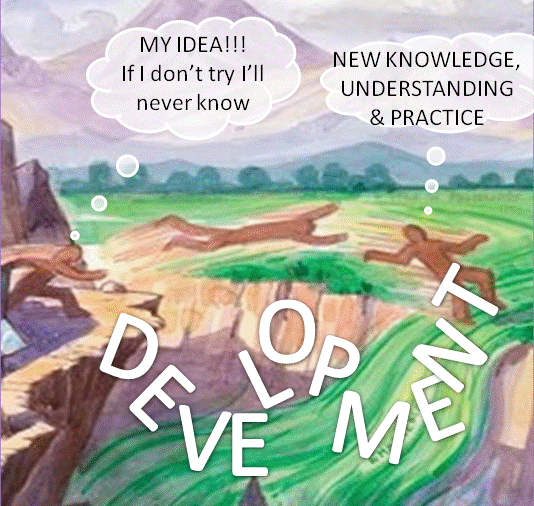
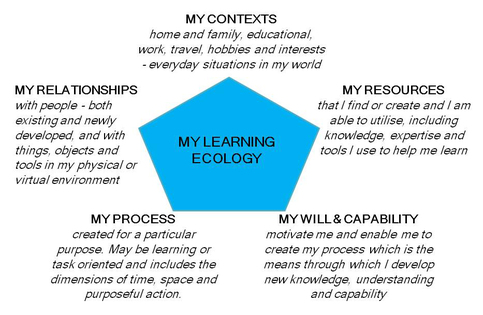
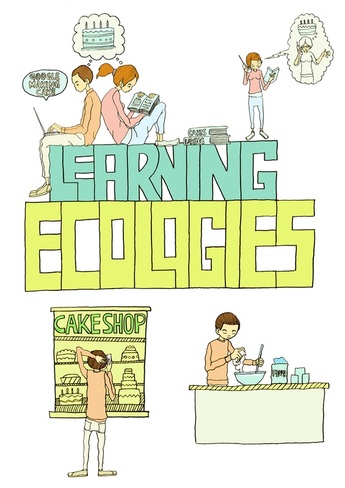
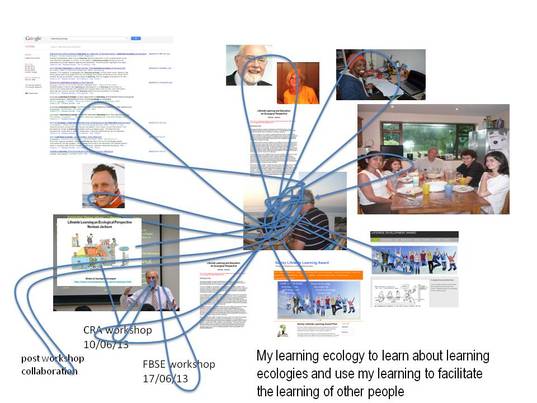




 RSS Feed
RSS Feed